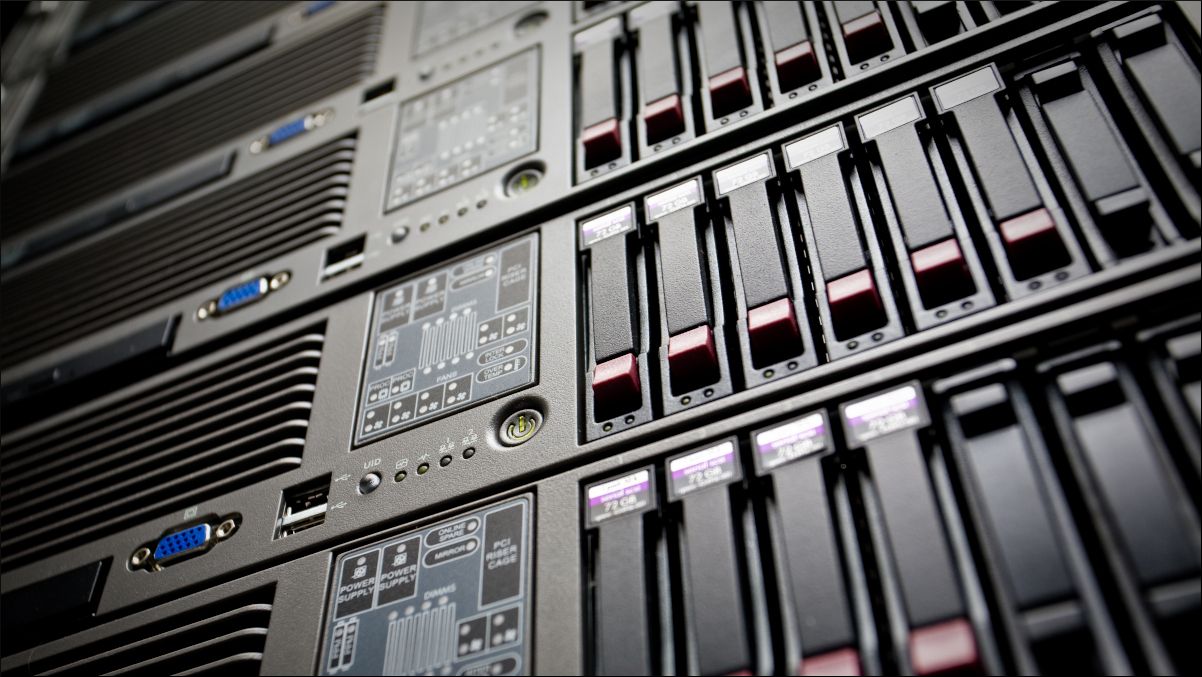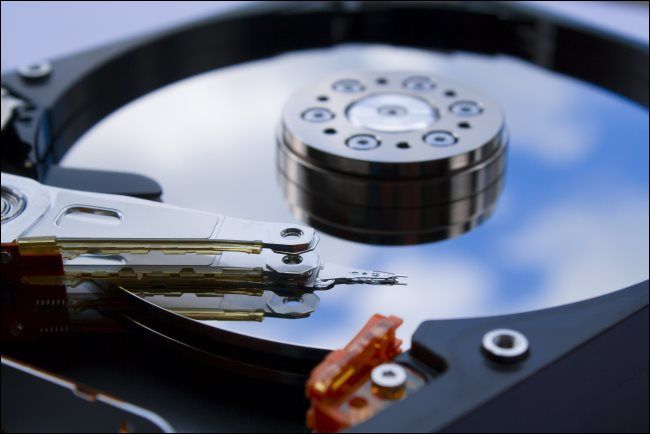While you probably don’t spend much time wondering about the gas that fills mechanical hard drives (or even think about spinning rust drives at all) it turns out that changing air for helium in these drives comes with a few nice perks. With helium drives on the market, what’s the deal?
What’s Wrong With Air?
Having air inside a hard drive seems pretty logical. It’s the same stuff around the drive, and that’s how it’s been from the start with mechanical drives. However, at the scale and speeds drives operate, “thin air” might actually pose more of an obstacle than you’d think.
Air is relatively thick, and the resistance it poses for the moving parts inside a hard drive can have negative consequences in terms of energy use and wear and tear. Moreover, as engineers try to cram more and more storage into the same space, the effects of air turbulence become an issue.
How Does Helium Help?
As mechanical hard drives are pushed more and more to the physical limit, you need small wins wherever you can get them. Swapping air for helium has numerous benefits. Helium is much, much less dense than air. This is why helium-filled balloons float, and why free helium rises to the top of the atmosphere and we constantly lose our limited supply of it to space.
This low density reduces the issues that air causes in hard drives significantly, leading to drives that are better in almost every way.
Helium Drives Can Fit More Stuff
Helium-filled hard drives let you fit more platters (by making them thinner thanks to the less dense gas), which means more total storage in the same space an air-filled drive uses. This is particularly important for data centers, servers, and other uses where more physical space costs money. If you could increase your storage by half just by swapping out existing drives without needing to buy more server room capacity, that’s a big win.
Helium Drive Can Go Faster
With less drag, you can spin platters faster, and the read/write heads can move more freely and precisely. It’s not going to turn a mechanical drive into an SSD, but any speed boost is welcome given how relatively slow mechanical drives are. Whether you know it or not, you rely on mechanical drives in data centers every day when you acces data on the web, so it really does benefit everyone. That said, most helium drives aren’t actually designed for speed, but instead reliability and efficiency.
Helium Means Cooler, Energy-Efficient Drives
Less friction, less wear, less heat, and ultimately less electricity are all major reasons big server operations may opt to switch to helium drives. Drives that are more ecofriendly add up in a big way when you’re using thousands of them! Data centers are already facing numerous energy challenges, so tackling this issue on multiple fronts makes a ton of sense.
Keeping the Helium In Is a Challenge
One of the biggest hurdles with helium drives is preventing the gas from escaping. Helium is a tiny molecule that can easily leak through seals if they aren’t perfectly designed. Manufacturers use specialized hermetic seals to trap helium inside the drive, but these seals add to the complexity and cost of production. Over time, even with advanced sealing techniques, there’s still a small risk of helium leakage, which can degrade the drive’s performance.
Helium itself is a scarce commodity, and every day that passes there’s less of it. So helium drives also have to contend with the ethics of using this gas, which is also needed for medical devices and other high-priority applications. Drive-makers do make use of recycled helium to combat this issue.
You Don’t Need a Helium HDD at Home
While there’s a clear benefit to using helium instead of air in a mechanical hard drive, those benefits are largely worth the extra cost in data centers, where the hardware will pay for itself quickly. While you can buy helium hard drives on sites like Amazon, there’s no particular reason for a normal desktop user to bother.
It’s easier to simply buy two regular hard drives if you need more space, and if you want speed, use an SSD instead. Even cheap SATA SSDs are much faster than any mechanical hard drive. It’s a very cool (ha!) development for mechanical hard drives, but technologies like HAMR are much more relevant to people like you and me.






